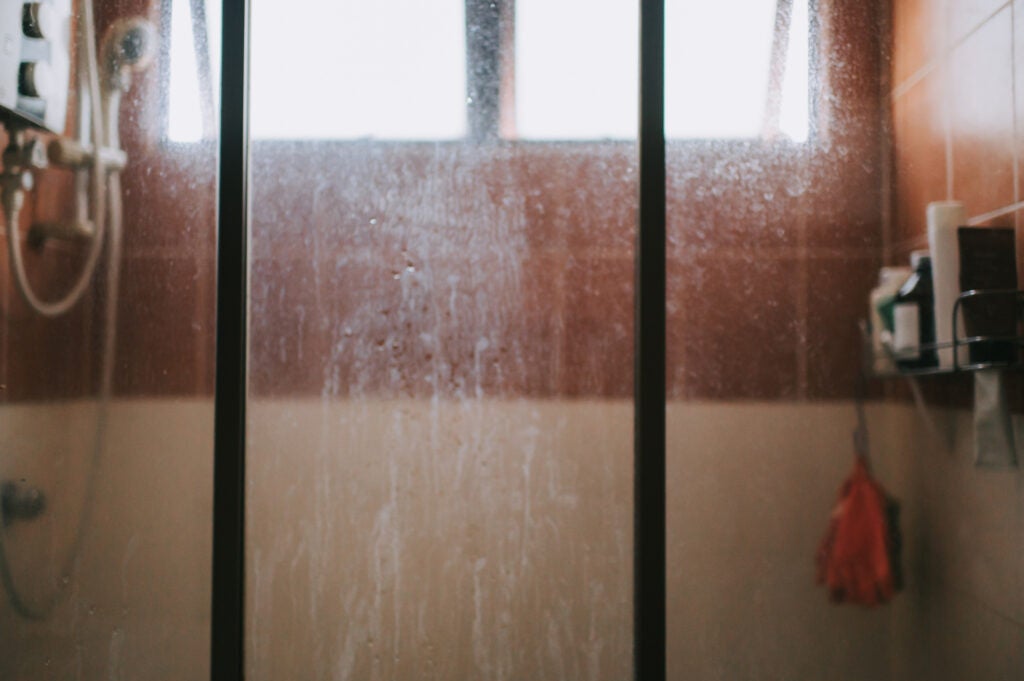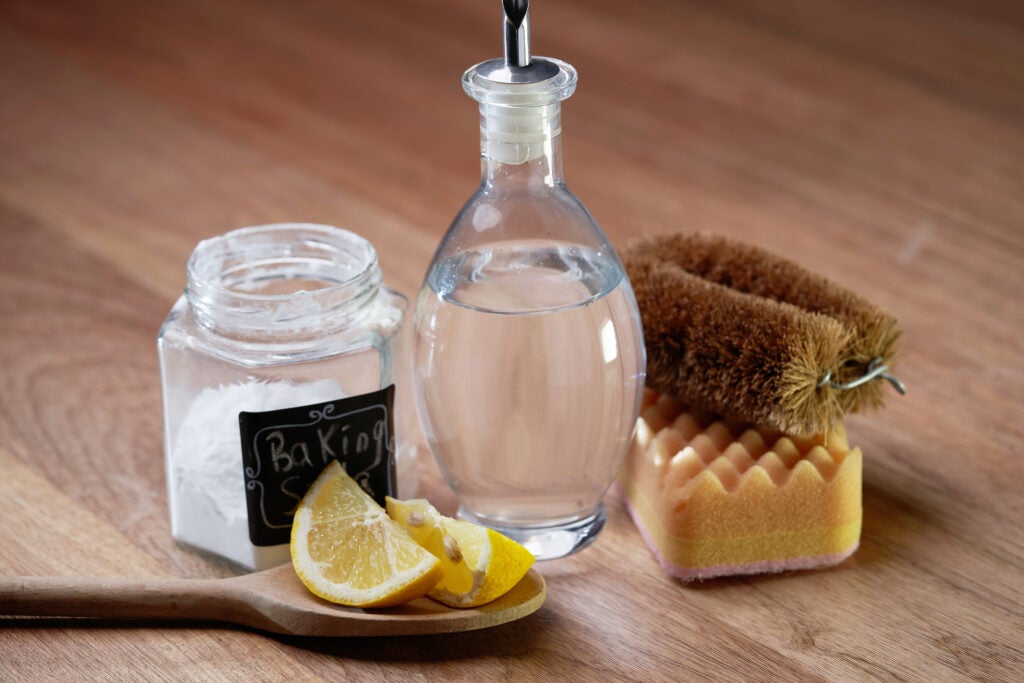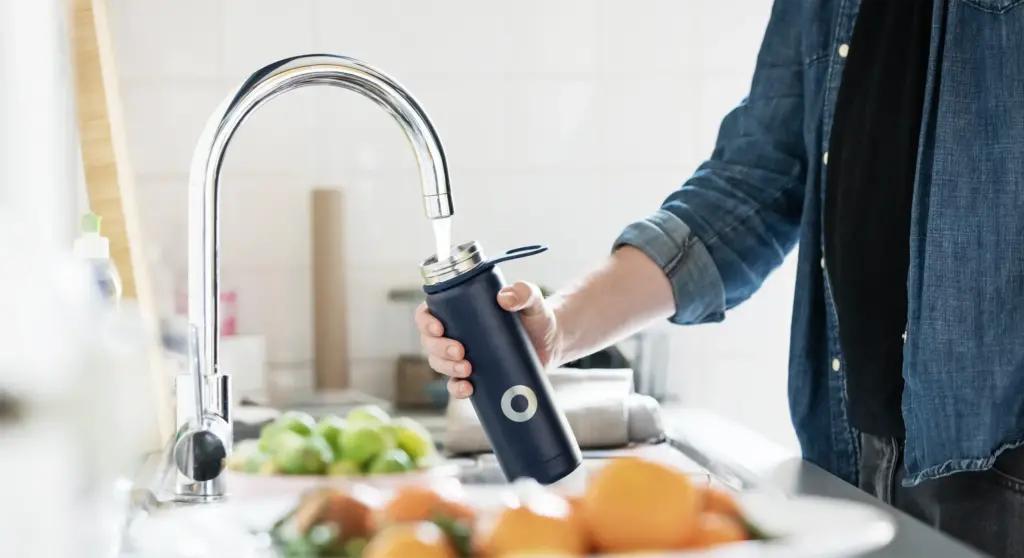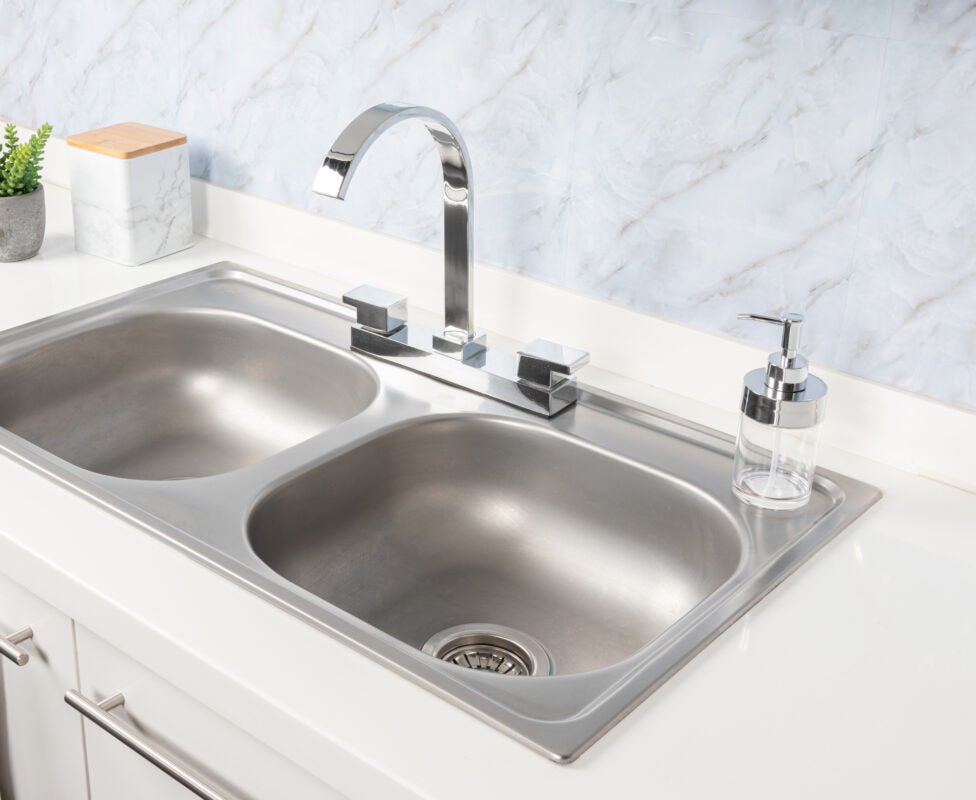Spring heralds a season of renewal, prompting many to embark on the annual tradition of spring cleaning. However, this season also brings the unwelcome challenge of dealing with water stains and scale buildup for homeowners grappling with hard water. These hard water woes mar the aesthetic appeal of your home and compromise the efficiency and lifespan of appliances. This comprehensive guide delves into practical strategies for preventing water stains, ensuring your spring-cleaning efforts yield sparkling results. In addition, they contribute to the longevity of your home fixtures and appliances.
Understanding Hard Water and Its Effects
Hard water is characterized by a high mineral content, such as calcium and magnesium. It occurs when water travels through limestone, chalk, or gypsum deposits, picking up these minerals along the way. According to the U.S. Geological Survey, 85 percent of homes in the US have been diagnosed with hard water.
Hardness is measured in grains per gallon (GPG):
- 0-3 gpg is considered soft water
- 3.5-7 gpg is moderate and ideal
- Anything >7.5 gpg is considered hard water and should be treated with a water softener
While not harmful to your health, these minerals can cause many household problems. They are responsible for the unsightly stains and spots on dishes, shower fixtures, sinks, and faucets. Scale buildup from hard water can clog pipes and reduce the efficiency of appliances like dishwashers and washing machines.
Hard water can also negatively affect personal hygiene and well-being. The excess minerals can cause dry, itchy skin and make you more susceptible to razor burn when shaving. It can also impact your hair, leaving it limper. For those who color your hair, you’ll notice the color will fade quicker than if you washed with soft water. Hard water can even fade clothes over time.
Identifying Signs of Hard Water in Your Home

Understanding the quality of your water is crucial to ensuring the longevity and efficiency of your household appliances and maintaining the aesthetic appeal of your home. Hard water can leave its mark in numerous ways, impacting everything from your plumbing to your comfort. Recognizing the signs of hard water is the first step toward addressing its effects.
Common Signs That Indicate the Presence of Hard Water
- Residue on Fixtures: One of the most visible signs of hard water is a white, chalky residue on faucets, showerheads, and other plumbing fixtures. This buildup, known as limescale, can diminish water flow and affect the performance of your appliances over time.
- Spots on Dishes and Glassware: After washing, do your dishes and glasses emerge from the dishwasher with spots or a cloudy appearance? Caused by minerals left behind as water evaporates, these spots are a telltale sign of hard water.
- Faded and Stiff Laundry: Hard water can also wreak havoc on your clothing, causing fabrics to fade, become stiff, or feel less comfortable against the skin. This is due to the accumulated minerals in the fabric fibers during washing.
- Dry Skin and Hair: Excessive minerals in hard water can strip moisture from your skin and hair, leading to dryness, irritation, and a lackluster appearance. If you notice these changes, particularly after moving to a new area, hard water could be the culprit.
- Increased Soap Use: Finding that soap and shampoo don’t lather as well as they should? Hard water hampers the ability of soap to produce suds, leading to increased usage of these products to achieve the desired cleaning effect.
Tips for Conducting Simple Tests at Home to Confirm Hard Water Issues
- Soap Suds Test: Fill a bottle about one-third full of water from your tap. Add a few drops of pure liquid soap, not detergent, and shake vigorously for a few seconds. If the mixture doesn’t lather well and creates only a few suds with a milky appearance, this suggests the presence of hard water.
- DIY Hardness Test Strip: Many hardware stores sell water hardness test strips. Simply dip a strip into your water supply according to the package instructions. The strip will change color to indicate the level of hardness of your water.
- Professional In-Home Water Quality Test: If you want the most accurate and comprehensive analysis of your home’s water quality, consider a professional in-home water test. Leaf Home Water Solutions (LHWS) offers every home a free digital water test, delivering accurate results within two minutes.
Identifying hard water in your home is critical to mitigating its effects and protecting your living environment. Armed with this knowledge, you can explore solutions tailored to your specific needs, ensuring the longevity of your appliances, the beauty of your home, and the health and comfort of your family.
Spring Cleaning Hard Water Stains: Strategies and Solutions

Implementing effective strategies for preventing and removing hard water stains and spots not only enhances the cleanliness and aesthetic appeal of your home but also safeguards the efficiency and longevity of your appliances and fixtures.
Embracing Natural Solutions and DIY Methods
In the spirit of spring cleaning, incorporating natural solutions offers a safe and environmentally friendly approach to mitigating hard water issues. Often harnessing household staples, these methods can effectively tackle minor stains and prevent their recurrence.
- Vinegar and Water Solution: A mixture of equal parts white vinegar and water is an excellent remedy for removing hard water stains from surfaces like glass, ceramics, and faucets. Vinegar’s acidic nature helps dissolve mineral deposits. Simply apply the solution with a spray bottle, let it sit for a few minutes, and scrub gently with a soft brush or cloth before rinsing.
- Baking Soda Paste: For tougher stains, apply a paste made from baking soda and a small amount of water directly to the affected area. Baking soda’s mild abrasive properties help scrub away deposits without damaging surfaces. Allow the paste to sit for 15-20 minutes, then rinse thoroughly.
- Lemon Juice: The citric acid in lemon juice acts similarly to vinegar, making it another effective agent against hard water stains. Apply lemon juice directly to stains, leave for a few minutes, and then wipe clean. This method is particularly useful for chrome fixtures, offering the added benefit of a fresh, clean scent.
Implementing Preventative Measures
Prevention is critical to minimizing the impact of hard water on your home. Regular maintenance and adopting strategic practices can significantly reduce the formation of mineral deposits and stains.
- Water Softening Systems: Investing in a whole-home water softening system addresses hard water at its source. By helping reduce excess minerals from your water supply, these systems prevent the accumulation of limescale, protect your appliances, and enhance the overall quality of your water.
- Regular Cleaning Routines: Incorporating the cleaning of fixtures and surfaces prone to hard water stains into your normal cleaning routine can prevent the buildup of mineral deposits. Quick, frequent cleanings are often more effective and less labor-intensive than addressing severe buildup.
- Filter Attachments: Consider installing filter attachments for targeted areas, such as showerheads or kitchen sinks. These devices can help reduce the mineral content in the water at the point of use, thereby mitigating the formation of hard water stains.
Spring cleaning presents an ideal opportunity to address and mitigate the challenges posed by hard water. By embracing natural solutions and implementing preventative measures, you can protect your home’s beauty and functionality while ensuring your family’s comfort and satisfaction.
Professional Solutions for Hard Water Challenges

While DIY methods and regular maintenance can significantly contribute to managing hard water issues, they may not always provide a comprehensive solution. For those seeking a more permanent resolution to the challenges of hard water, professional water purification systems are the answer.
Introducing Leaf Home Water Solutions
Leaf Home Water Solutions is a leading provider offering advanced, reliable, and efficient home water purification systems designed to meet various customer needs. We stand at the forefront of water purification technology, protecting your home and family from harsh chemicals, bacteria, and other contaminants. Our commitment to providing professional, detailed, and technical information ensures that customers are well-informed about the benefits and workings of their products and services.
A Comprehensive Range of Products and Services
Leaf Home Water Solutions offers an extensive portfolio of products and services tailored to combat the adversities of hard water, ensuring that every household can find a fitting solution. Among these offerings are:
- UV Water Purification Systems: These systems utilize ultraviolet light to disinfect water by neutralizing harmful microorganisms without using chemicals. This method is especially beneficial for ensuring the safety and purity of your household’s water supply.
- Reverse Osmosis Systems: Revered for their efficiency in significantly reducing contaminants, reverse osmosis systems employ a multi-stage filtration process. This process includes passing water through a semipermeable membrane. It effectively reduces a broad spectrum of impurities, including those responsible for hard water effects. RO systems deliver clean, soft water directly from your tap.
- Salt-Free Water Conditioners: For those seeking an eco-friendly alternative to traditional water softeners, salt-free conditioners present an innovative solution. These systems work by altering the chemical structure of minerals in hard water, preventing them from forming scale deposits without adding salt or chemicals. This approach not only addresses hard water stains and buildup but also maintains the beneficial minerals in your water.
Opt for a professional water purification system. These systems offer a more permanent and effective solution to hard water problems than temporary fixes. These systems are engineered to address the root cause of hard water by removing or altering the minerals responsible for scale buildup and staining. Moreover, with the installation of a professional system, households benefit from continuous, hassle-free protection against the detrimental effects of hard water on appliances, plumbing, and surfaces.
Renew Your Home This Spring: The Essential Step of Water Quality Enhancement
As we embrace the spirit of rejuvenation that comes with spring, we must recognize the importance of water quality in our homes. Addressing hard water issues is not just about enhancing the aesthetic appeal of your living space. It’s about safeguarding the efficiency and longevity of your appliances and ensuring the well-being of your family. Integrating a water quality assessment into your spring-cleaning routine is vital to a truly revitalized home environment.
Leaf Home Water Solutions is your partner in transforming your home’s water from hard to soft and clean. Our advanced water purification systems are designed to meet your specific needs, offering a customizable solution to hard water challenges. Schedule your free home water test today!
Let us enhance every drop of water in your home and ensure a season of renewal that extends beyond cleaning.
Frequently Asked Questions
- What defines hard water, and how do I know if my home has it?
Hard water is characterized by a high concentration of minerals, primarily calcium and magnesium. It can lead to scale buildup on appliances, fixtures, and pipes. Signs your home may have hard water include spotting on dishes and glassware, reduced soap lather, dry skin, and scale buildup on faucets. A professional water test can provide a definitive answer. - Are there any health risks associated with hard water? While hard water is not typically harmful to consume, it can cause issues for those with sensitive skin or certain medical conditions. Additionally, the buildup of scale and other impurities in your water can affect your drinking water’s overall taste and smell.
- How do you get hard water stains out? Hard water stains can be difficult to remove, but a few methods can help. One option is to use vinegar and water to scrub the affected area, followed by rinsing with clean water. Another method is using a specialized hard water stain remover, which can be found at most hardware or home goods stores.
- Can hard water stains be permanent? Hard water stains are not permanent but will continue to appear if your water is hard. This issue is why it’s essential to regularly test and treat your home’s water quality to prevent the buildup of scale and other impurities that can cause staining.
- How often should I have my water tested? It is recommended that your home’s water quality be tested at least once a year. However, if you notice any changes in the smell, taste, or appearance of your water, it is best to schedule a test as soon as possible.
- How do water purification systems work to address hard water?
Water purification systems, such as water softeners, reduce minerals that cause hardness, primarily calcium and magnesium, through a process known as ion exchange. This process replaces these minerals with sodium or potassium ions, softening the water. Other systems, like reverse osmosis and UV purification, target a broader range of contaminants, providing comprehensive water quality solutions.
